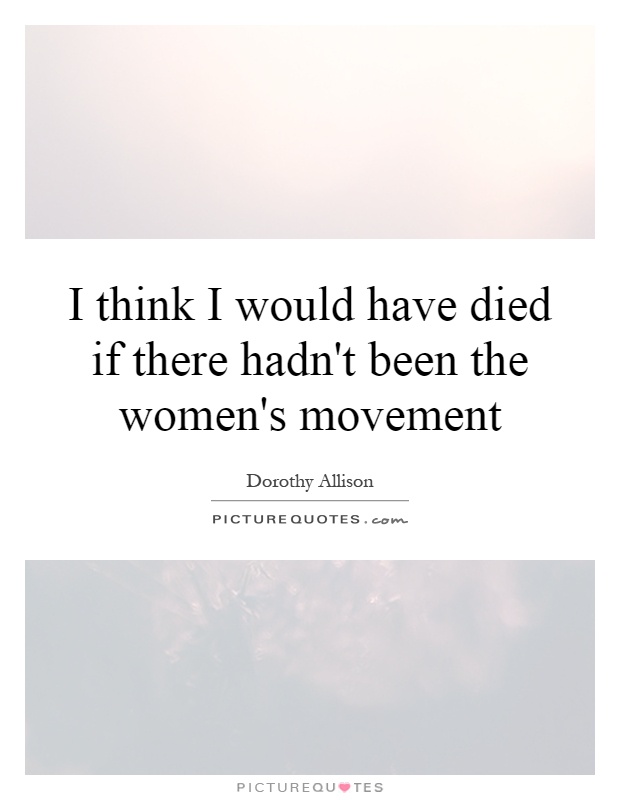I think I would have died if there hadn't been the women's movement

I think I would have died if there hadn't been the women's movement
Dorothy Allison, a renowned American writer and feminist activist, is no stranger to the struggles faced by women in a patriarchal society. Born in 1949 in South Carolina, Allison grew up in poverty and experienced firsthand the discrimination and violence that women often face. Her experiences as a survivor of sexual abuse and domestic violence have greatly influenced her work, which often explores themes of gender, sexuality, and class.In her essay "A Question of Class," Allison reflects on the impact of the women's movement on her life and the lives of countless other women. She writes, "I think I would have died if there hadn't been the women's movement." This powerful statement speaks to the transformative power of the women's movement in providing women with a voice, agency, and the tools to challenge the oppressive structures that seek to silence and marginalize them.
For Allison, the women's movement was not just a political or social movement, but a lifeline that helped her navigate the complexities of her own identity and experiences. As a working-class lesbian woman, Allison faced multiple forms of discrimination and marginalization, but the women's movement provided her with a sense of community and solidarity that allowed her to reclaim her voice and her power.
Through her writing, Allison has been able to amplify the voices of marginalized women and challenge the dominant narratives that seek to erase their experiences. Her groundbreaking novel "Bastard Out of Carolina" explores the interplay of gender, sexuality, and class in the life of a young girl growing up in the American South. The novel has been praised for its unflinching portrayal of the realities of poverty, abuse, and survival, and has cemented Allison's reputation as a fearless and uncompromising voice in feminist literature.












 Friendship Quotes
Friendship Quotes Love Quotes
Love Quotes Life Quotes
Life Quotes Funny Quotes
Funny Quotes Motivational Quotes
Motivational Quotes Inspirational Quotes
Inspirational Quotes